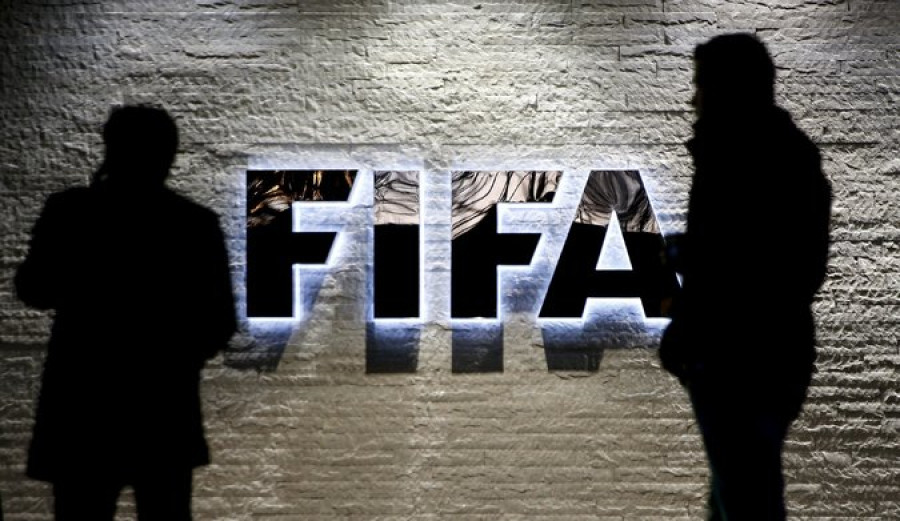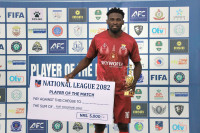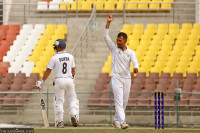Sports
New wave of arrests in FIFA corruption scandal
Authorities have begun more arrests as part of an investigation into corruption among FIFA officials.
The New York Times
Swiss authorities began a new series of pre-dawn arrests Thursday in the broad investigation, led by United States officials, into corruption in international soccer. More than a dozen people were expected to be charged, law enforcement officials said, nearly doubling the size of an already huge case that has upended FIFA, soccer’s multibillion-dollar governing body.
The police were targeting current and former senior soccer officials on charges that include racketeering, money laundering and fraud, authorities said. The new charges were expected to hit South and Central American soccer leaders particularly hard, the officials said.
The arrests, coming as FIFA’s leaders gathered in Zurich, served as a high-profile reminder that despite the organization’s promises of reform, soccer’s top officials remain under intense legal scrutiny by the investigation.
Continue reading the main story
RELATED COVERAGE
FIFA was plunged into chaos on Thursday with the suspensions of top, powerful leaders.The FIFA Scandal: Questions and AnswersOCT. 8, 2015
Sepp Blatter, FIFA’s president, at the group’s headquarters in Zurich on Friday. He was interrogated by officials from the office of Switzerland’s attorney general.Sepp Blatter, FIFA President, Faces Criminal Investigation in SwitzerlandSEPT. 25, 2015
Sepp Blatter was elected FIFA president in 1998. interactive The Rise and Fall of Sepp BlatterMAY 27, 2015
Sepp Blatter leaving FIFA headquarters Thursday in Zurich. Blatter, FIFA’s president, and two others were suspended for 90 days.Sepp Blatter and Other Top Officials Are Suspended, Deepening FIFA’s TurmoilOCT. 8, 2015
It was not immediately clear who was charged, but law enforcement officials said the list did not include Sepp Blatter, FIFA’s longtime president. In May, United States officials announced charges against 18 people of 12 nationalities. They described two decades of corruption in which officials rigged World Cup bids and steered marketing and broadcast contracts in exchange for bribes — paid out through convoluted financial deals and briefcases full of cash. Mr. Blatter quickly announced plans to resign.The United States Justice Department was expected to unseal indictments in the case as early as Thursday morning, according to several law enforcement officials who were briefed on the case and spoke on condition of anonymity because they were not authorized to discuss the investigation. F.B.I. and United States tax agents, along with federal prosecutors in New York, have spent years building the case against FIFA. They promised this spring to rid the organization of corruption.
United States authorities have long predicted more charges in the case, but the number of people involved — nearly as many as were charged in May — was not expected.
Members of FIFA’s executive committee were meeting in Zurich this week to approve reform measures. The group is under pressure not just from investigators but also from sponsors. Five World Cup sponsors, including Adidas, McDonald’s and Coca-Cola, signed a letter this week urging FIFA to ensure independent oversight of the reforms.
A new election to select a replacement for Mr. Blatter is set for February. He has been under suspension, along with several other top officials, since Switzerland announced in late September that he was the focus of a separate criminal inquiry. Several other countries, including Brazil and Trinidad and Tobago, have opened investigations of their own.
This spring’s arrests were met around the world with a mixture of praise and derision. Many soccer fans were thrilled that American law enforcement officials had set their sights on FIFA, which had been dogged by corruption allegations for years but faced few consequences. Mr. Blatter, however, said the charges were retribution for United States’s not being chosen to host the 2022 World Cup. “It doesn’t smell good,” he said.
More broadly, case raised questions about how the American government interprets its own authority to prosecute people for crimes committed overseas. To do so, the law requires some link between the crime and the United States. In the FIFA case, the government said American banks were used in the scheme. That has been enough to establish jurisdiction in other cases, a precedent that has been particularly useful in prosecuting international terrorism suspects.
Whether or not an American courthouse was the ideal venue for the case, Justice Department have said, it became clear that FIFA was operating corruptly for years and no other country was doing anything about it. “They clearly thought the U.S. was a safe financial haven for them,” Attorney General Loretta E. Lynch said this spring.




 13.16°C Kathmandu
13.16°C Kathmandu














